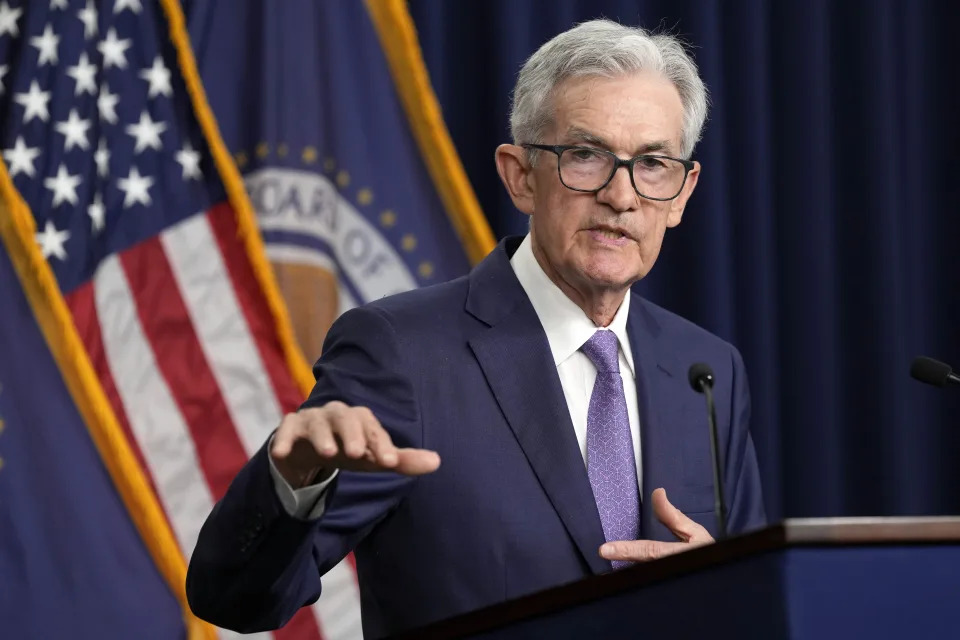As 2024 comes to a close, issues such as struggling banks and rising inflation continue to plague the industry. Additionally, the industry is preparing for the changes President-elect Donald Trump's administration could bring in 2025.
Flushing Financial took a hit in the stock market after the bank said it was raising $70 million to restructure its balance sheet. Flushing's transaction priced its shares at $15.25, an 11.5% discount from their value when the market closed on Dec. 12, but by the end of the next day, the $9.3 billion-asset company's share price had dropped about 12.5%, to $15.09.
Flushing's transaction will help the bank boost its return on average assets and earnings per share, CEO John Buran said in an interview. Flushing plans to sell about $400 million to $500 million in securities and about $100 million in CRE loans. The bank also expects to reduce its government deposits — acquired through relationships with municipalities in New York — by about $150 million.
Read more: Former BaaS bank cited again by regulators
Other banks that have raised capital lately, like Dime Community Bancshares , Valley National Bancorp and Associated Bancorp , priced their transactions at discounts of 6% to 7%.
In addition to repositioning its securities portfolio this year, Dime is also unwinding an employee pension plan by distributing payments. Ending the plan is expected to cost the bank about $1 million in the fourth quarter and $2 million more in the first quarter of 2025.
Dime has been growing over the past two years, rapidly hiring commercial lenders to capitalize in part on the disruption caused by the 2023 failure of Signature Bank in New York and the potential for an uptick in loan demand in the year ahead as interest rates decline.
"The momentum in our business is extremely strong," Stuart Lubow, Dime's president and CEO, said during the company's latest earnings call. He acknowledged the rising costs, however, and said the bank expected to "keep expense levels relatively flat in the fourth quarter and into 2025 as we are working on a number of efficiency optimization initiatives."
Read more: Trump 'uncertainty' contributes to hawkish shift at Fed
Trump is stating his plans to keep the United States competitive in crypto. He tapped PayPal co-founder David Sacks to be his "czar" of crypto and artificial intelligence policies. Sacks has been a true believer in digital assets, particularly bitcoin, for years. In 2017, Sacks said the cryptocurrency was "fulfilling PayPal's original vision to create the new world currency."
While enacted policies toward crypto engagement could be beneficial for banks looking to enter the space, greater legitimacy of the sector could cause problems for banks and traditional financing models.
Some in the crypto space say it is essential that the crypto and traditional bank worlds work together for innovation, but also to preserve free-market ideals in the burgeoning world of digital finance.
Paul Neuner, CEO of the digital asset firm Telcoin, sees bank-issued stablecoins as a counterweight to state-issued central bank digital currencies. His firm is pursuing a banking license in Nebraska and ultimately hopes to gain access to the national payments system under the Trump administration.
"We're doing the free-world model, which maintains that a bank is an intermediary between the citizens and the government, and I think that's very important. I think that's the model that'll win out in the majority of countries," Neuner told American Banker's Kyle Campbell . "But, yeah, this is definitely a philosophical competition that's emerging, so we're trying to be the first to present that model in the U.S."
Read on for more on recent banking struggles and Trump's plans for crypto.
Trump discusses his plan for a crypto reserve
During an interview with CNBC's Jim Cramer, Trump reiterated his intentions for a crypto reserve, adding that he sees innovation in the space as being a matter of
international competition
.
"We're going to do something great with crypto," he said in the interview. "Because we don't want China — and not just China, others are embracing it, and we want to be the head."
Trump first endorsed the idea of a strategic reserve of crypto assets over the summer, during a speech at the Bitcoin 2024 conference. At the time, he suggested the government could build up the reserve over time by retaining assets seized from criminals rather than auctioning them off.
Read more:
'Something great with crypto:' Trump affirms bitcoin reserve
Flushing Financial's restructuring of balance sheet felt in stock market
Flushing Financial faced a tough day in the stock market on Dec. 13, after the New York bank said it was raising $70 million to restructure its balance sheet, joining the ranks of banks that have recently announced common stock offerings.
Surging bank stock prices in the last couple of months have created a stronger environment for raising equity, and the drop in interest rates has made it less painful to unload low-yielding securities. Flushing plans to use its fresh capital to sell a chunk of its bond portfolio and offload some of the commercial real estate loans that have been dragging on its earnings, CEO John Buran said in an interview.
Buran also contended that the recent disruption in the New York banking market — from consolidation , with some banks failing and others hitting rough patches — puts Long Island-based Flushing in a competitive sweet spot.
"We felt that this is really an appropriate time to accelerate the performance dynamics of the company by entering into a balance-sheet restructuring, so that we can see some immediate improvements," Buran told American Banker's Catherine Leffert . "We see this transaction and this additional capital as being a catalyst for these baseline trends that have been taking place only in the last few months or so."
Read more:
Flushing Financial's $70 million capital raise prompts sell-off in shares
Dime's efforts to reposition securities portfolio results in losses
Dime Community Bancshares repositioned its securities portfolio in 2024 by selling low-yielding holdings at losses, creating near-term hits to earnings but generating proceeds the bank can reinvest into profitable endeavors.
The Hauppauge, New York-based Dime said in a press release on Dec. 12 that it sold $379 million of debt securities with a weighted average yield of 1.20% and a duration of just over three years. The $13.7 billion-asset company reinvested all of the proceeds into a new batch of debt securities with a weighted average yield of 5.08% and a duration of about four years.
Analyst Steve Moss of Raymond James told American Banker's Jim Dobbs that while the action creates near-term earnings pain, it should drive long-term improvement. Moss estimated the securities reinvestment would prove $14.7 million accretive to annual net interest income and bolster Dime's net interest margin by 10 basis points.
Read more:
Dime in NY takes $43 million hit to unload underperforming securities
Tesla adopts real-time payments through Origence
According to Capgemini's
World Payments Report 2025
, cash-flow management is a top concern for vehicle manufacturers and dealers, which could be eased with faster payment methods such as The Clearing House's real-time payments or the Federal Reserve's FedNow Service. Despite this, only a handful of financiers offer instant payment capabilities.
Some auto-finance firms are adopting real-time payments. Origence, a credit union service organization that specializes in auto-lending technology, and Catalyst Corporate Federal Credit Union, a credit union for credit unions, in September launched instant payments through FedNow that allow credit unions connected to Origence's lending subsidiary, FI Connect, to instantly fund loans to Tesla.
Tesla is Origence and Catalyst's first FedNow user in auto lending.
"Tesla is a publicly traded company. They have their month-ends and quarter-end figures that they have to do," Origence Chief Financial Officer Neetu Bhagat told American Banker's Joey Pizzolato . "They're an OEM, so cash is always an issue. This mechanism allows us to make settlements for them on the weekends [and] late at night, whether it's 7 p.m., 8 p.m., 9 p.m."
Read more:
Tesla pushes real-time payments adoption into the fast lane
Headline inflation slightly increased in November
Headline inflation saw a slight increase in November, according to the Labor Department's leading price measurement survey, the consumer price index, providing further evidence that the U.S. economy is not only strong but possibly gaining steam. Inflation still remains above the Fed's target of 2%, at 2.7%.
The headline inflation increase was driven by a resurgence of food and utility gas prices. In the core index, price growth related to housing and transportation cooled.
The Fed's target for inflation is based on a government survey known as the personal consumption expenditures index, which tends to reflect a lower price growth rate. Its most recent reading from that report showed 2.3% inflation in October, putting it closer to the Fed's objective.
Read more:
Inflation proves sticky, clouding Fed policy outlook






